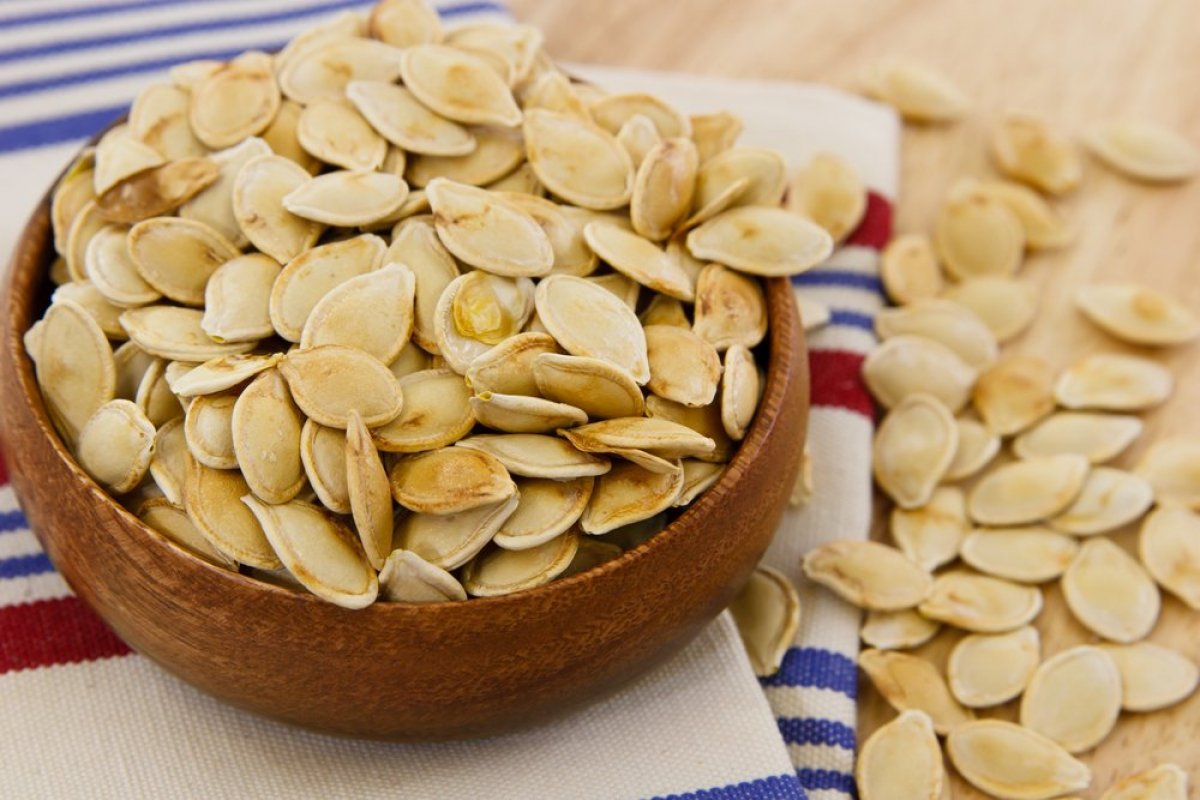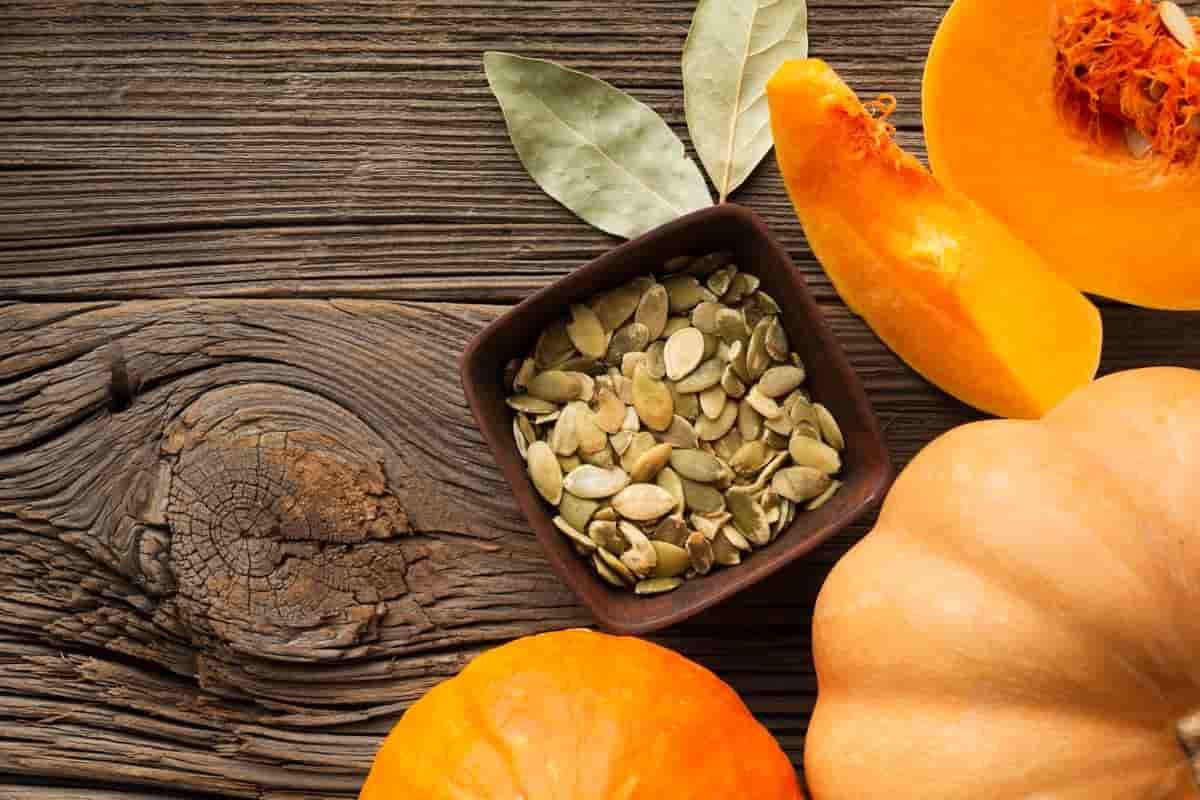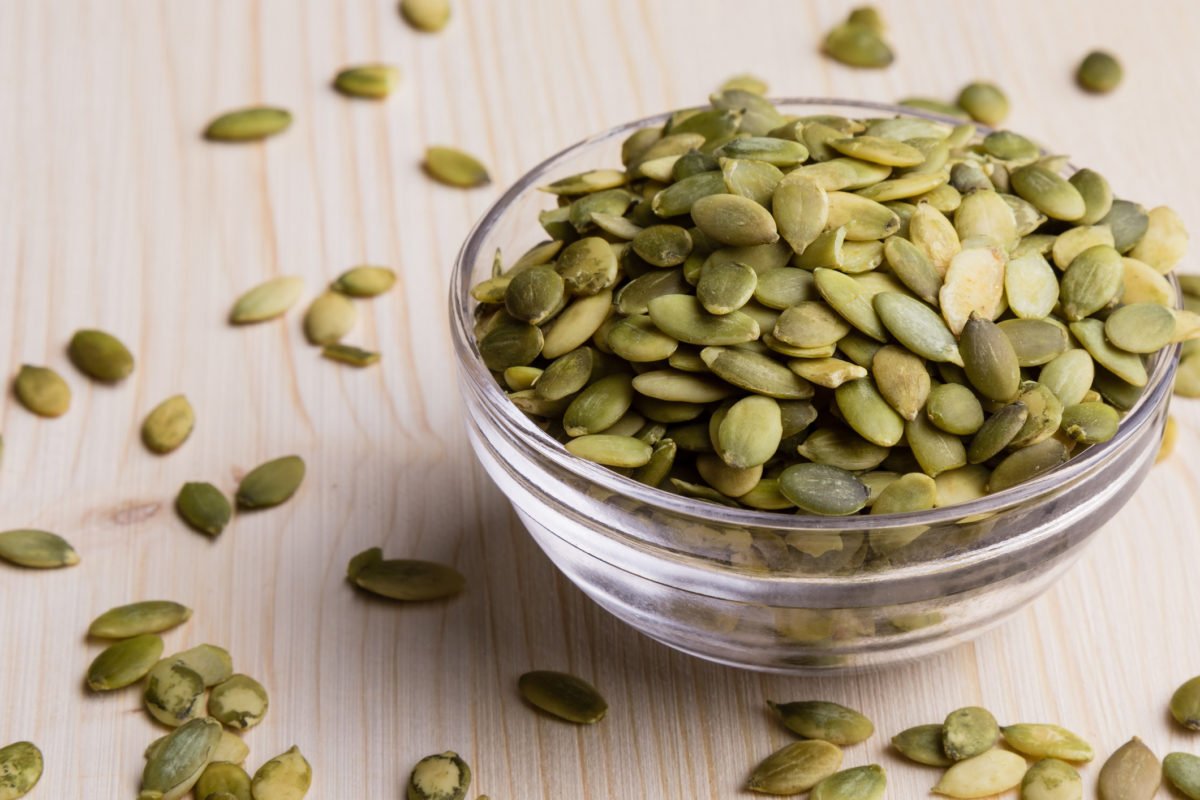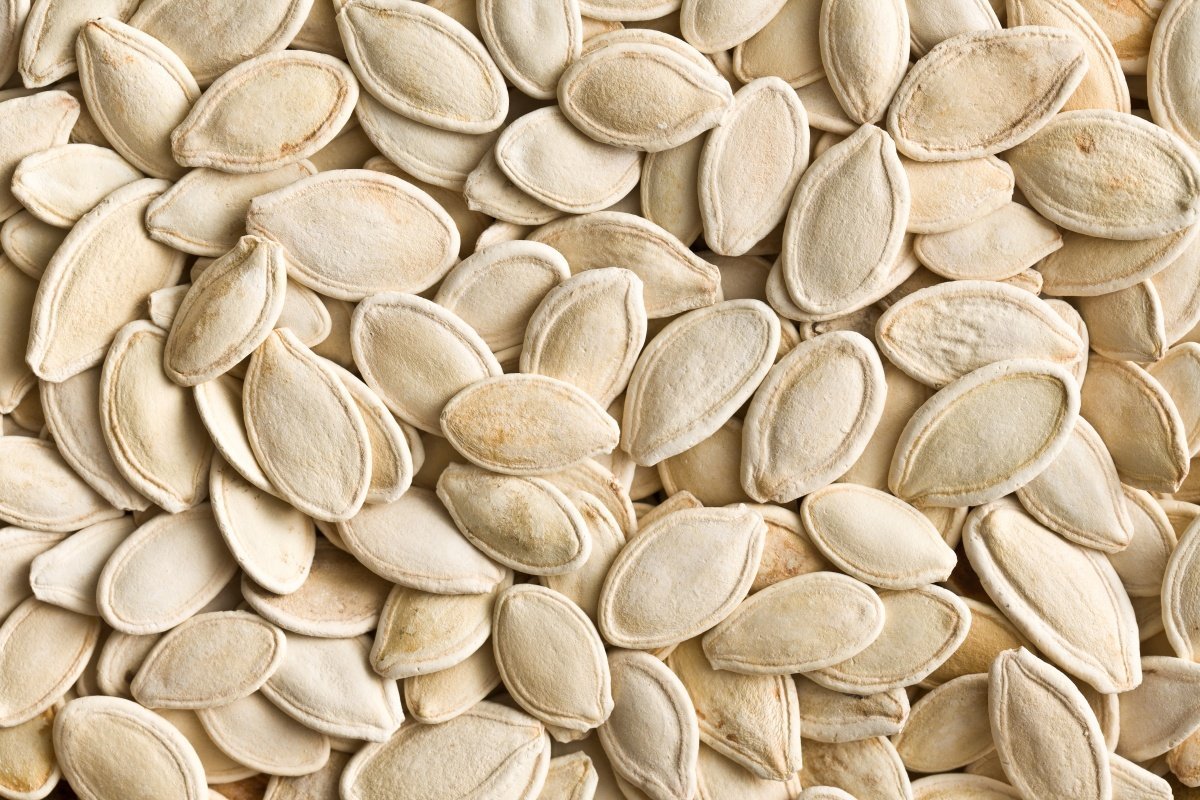Pumpkin seeds, also known as pepitas, are small, flat, and oval seeds that are derived from pumpkins belonging to the Cucurbitaceae family. These seeds have long been enjoyed as a snack and are commonly used in various culinary recipes and traditional medicine. Apart from their delicious taste and crunchy texture, pumpkin seeds are packed with essential nutrients, including iron. In this article, we will explore the iron content in pumpkin seeds and discuss its nutritional benefits.
Iron Content in Pumpkin Seeds:
Pumpkin seeds are an excellent source of iron, a crucial mineral required by the body to perform several important functions. A 100-gram serving of pumpkin seeds contains approximately 8.8 milligrams of iron. This translates to around 49% of the recommended daily intake of iron for adult men and 25% for adult women. The iron content in pumpkin seeds makes them a valuable addition to a balanced diet, especially for individuals who may be at risk of iron deficiency or anemia.
Importance of Iron in the Body:
Iron plays a significant role in the body, contributing to the overall health and well-being of individuals. It is a vital component of hemoglobin, which is responsible for transporting oxygen throughout the body. Iron also assists in the production of myoglobin, a protein found in muscles that helps store and transport oxygen during physical activity. Additionally, iron is involved in the synthesis of enzymes, metabolic processes, and the formation of red blood cells.
Benefits of Iron-Rich Pumpkin Seeds:
Consuming pumpkin seeds can provide several benefits due to their rich iron content. Let’s explore some of the key advantages:
1. Promotes Optimal Energy Levels: Iron is crucial for the production of red blood cells, which carry oxygen to different parts of the body. Adequate iron levels help support energy production, reducing fatigue and promoting vitality.
2. Boosts Cognitive Function: Iron contributes to optimal brain function, including memory, concentration, and overall cognitive performance. Incorporating iron-rich foods like pumpkin seeds into your diet can aid in enhancing mental focus and preventing cognitive decline.
3. Supports Immune System: Iron plays a crucial role in maintaining a healthy and robust immune system. It assists in the production of white blood cells, which help fight off infections and pathogens. Consuming pumpkin seeds can strengthen the immune response and reduce the risk of illnesses.

4. Enhances Exercise Performance: Iron is essential for oxygen delivery to muscles during physical activity. Individuals engaged in regular exercise or sports can benefit from including iron-rich foods like pumpkin seeds in their diet. This can help improve endurance, reduce muscle fatigue, and support optimal performance.
5. Prevents Iron Deficiency Anemia: Iron deficiency anemia is a common condition characterized by low levels of iron in the body. Regular consumption of iron-rich foods like pumpkin seeds can help prevent and treat this condition by replenishing iron stores and supporting healthy blood cell production.
Tips for Incorporating Pumpkin Seeds into Your Diet:
To maximize the iron content and overall nutritional benefits of pumpkin seeds, consider the following tips:
1. Snack on Pumpkin Seeds: Enjoy a handful of raw or roasted pumpkin seeds as a healthy and convenient snack. They can be consumed alone or mixed with other nuts and dried fruits for added flavor and texture.
2. Use Them in Food Preparation: Add pumpkin seeds to your favorite dishes, such as salads, soups, and stir-fries. Their crunchy texture and nutty flavor can be a delightful addition to elevate your meals.
3. Include in Baked Goods: Incorporate pumpkin seeds into bread, muffins, cookies, and granola bars for a nutritious twist. They can add a delightful crunch and boost the iron content of your baked goodies.
4. Create Homemade Nut Butter: Blend roasted pumpkin seeds in a food processor with your choice of spices and sweeteners to create a delicious and nutrient-rich pumpkin seed butter. This can be used as a spread or dip for fruits and vegetables.
Considerations and Precautions:
While pumpkin seeds are generally safe and well-tolerated, some individuals may experience allergies or sensitivities. It’s important to monitor for any adverse reactions and seek medical advice if necessary. Additionally, individuals with certain medical conditions or on specific medications should consult with a healthcare professional before making any significant dietary changes.
Conclusion:

Pumpkin seeds are an excellent source of iron, providing numerous nutritional benefits. Their iron content contributes to optimal energy levels, cognitive function, immune system support, exercise performance, and prevention of iron deficiency anemia. By incorporating pumpkin seeds into your diet through snacks, food preparation, and baking, you can reap the advantages of this nutritious and delicious seed. However, always remember to listen to your body and consult with a healthcare professional as needed.Title: The Nutritional Benefits of Pumpkin Seeds: A Rich Source of Iron
Introduction:
Pumpkin seeds, also known as pepitas, are small, flat, and oval seeds that are derived from pumpkins belonging to the Cucurbitaceae family. These seeds are not only delicious and versatile but are also packed with essential nutrients, including iron. In this article, we will explore the iron content in pumpkin seeds and discuss its nutritional benefits. Additionally, we will delve into the business potential of pumpkin seeds, including their use in food products, supplements, and the health and wellness industry.
1. Iron Content in Pumpkin Seeds:
Pumpkin seeds are considered an excellent source of iron. A 100-gram serving of pumpkin seeds contains approximately 8.8 milligrams of iron, making them a valuable addition to a balanced diet. Iron contributes to vital functions within the body, such as oxygen transport, enzyme synthesis, and red blood cell formation. This high iron content allows pumpkin seeds to play a significant role in addressing iron deficiency or anemia.
2. Food Products: Utilizing Pumpkin Seeds for Added Iron:
Food manufacturers can harness the iron-rich properties of pumpkin seeds by incorporating them into various products. Pumpkin seed snacks, artisanal bread, granola bars, and breakfast cereals are just a few examples of how pumpkin seeds can be used to enhance the iron content of foods. These products provide a convenient and tasty way for individuals to meet their daily iron requirements.
3. Supplements: Meeting Iron Needs through Pumpkin Seed Extract:
The use of pumpkin seed extract in dietary supplements has gained popularity in recent years. Extracts can be produced by grinding and drying pumpkin seeds, which are then formulated into capsules, tablets, or powders. These supplements offer a concentrated dose of iron and other beneficial nutrients, making them a convenient option for individuals with increased iron requirements or those at risk of iron deficiency.
4. Health and Wellness Industry: Capitalizing on Iron-Enriched Products:
Pumpkin seeds’ high iron content has led to their incorporation into the health and wellness industry. Companies have capitali“zed on their nutritional benefits by introducing iron-enriched products, such as protein bars, meal replacement shakes, and energy drinks. These products cater to health-conscious individuals seeking nutrient-dense options to support their active lifestyles while addressing iron needs.

5. Bakery and Confectionery: Adding a Nutritional Boost to Treats:
Bakers and confectioners can also leverage the iron content of pumpkin seeds to create nutritionally enhanced treats. Incorporating pumpkin seed flour or crushed pumpkin seeds into cookies, cakes, and pastries not only adds a unique texture and flavor but also increases their nutritional value. These products can appeal to health-conscious consumers looking for guilt-free indulgence.
6. Vegan and Plant-Based Diets: A Valuable Iron Source:
The rising popularity of vegan and plant-based diets has created a demand for iron-rich alternatives. Pumpkin seeds, with their high iron content, can serve as a valuable source of this essential mineral for individuals following these dietary choices. Food companies can target this niche market by incorporating pumpkin seeds into products specifically designed for vegans and plant-based enthusiasts.
7. Natural Remedies: Traditional and Herbal Medicine:
Pumpkin seeds have long been used in traditional and herbal medicine for their various health benefits. They are believed to possess properties that aid in the prevention and treatment of certain ailments, including urinary tract infections, prostate health, and parasite elimination. Businesses in the natural remedies market can explore incorporating pumpkin seed extracts or powders into their product lines to meet consumer demands for natural and holistic treatments.
8. Nutrient-Dense Snack Market: Catering to the Health-Conscious:
The demand for nutrient-dense snacks has witnessed a significant surge in recent years. Pumpkin seeds, with their iron-rich profile and abundance of other nutrients like protein, fiber, and healthy fats, align perfectly with this market trend. Entrepreneurs can tap into this market by providing innovative and healthy pumpkin seed snack options, including flavored roasted pumpkin seeds, trail mixes, and energy bars.
9. Sports Nutrition: Fueling Performance with Iron-Packed Seeds:
Athletes and fitness enthusiasts require adequate iron levels to support their intense training and performance goals. Pumpkin seeds offer a natural and nutrient-rich source of iron, making them an ideal inclusion in sports nutrition products. Protein powders, energy gels, and recovery snacks fortified with pumpkin seed extracts can offer athletes a comprehensive nutritional profile to enhance endurance, recovery, and overall performance.
10. International Trade: Expanding Market Opportunities:

Pumpkin seeds and their iron content present opportunities for international trade. Countries with extensive pumpkin cultivation can export pumpkin seeds to countries with less pumpkin production, increasing access to iron-rich food sources and facilitating global nutrition. This can be particularly beneficial for regions where iron deficiency and anemia are prevalent.
Conclusion:
Pumpkin seeds are not just a delicious and versatile snack but also a rich source of iron, offering numerous nutritional benefits. Their high iron content makes them a valuable addition to various food products, supplements, and the health and wellness industry. From bakery to confectionery, natural remedies to sports nutrition, the business potential of pumpkin seeds is vast. Embracing this nutritional powerhouse can not only cater to diverse consumer demands but also contribute to addressing iron deficiency globally.










